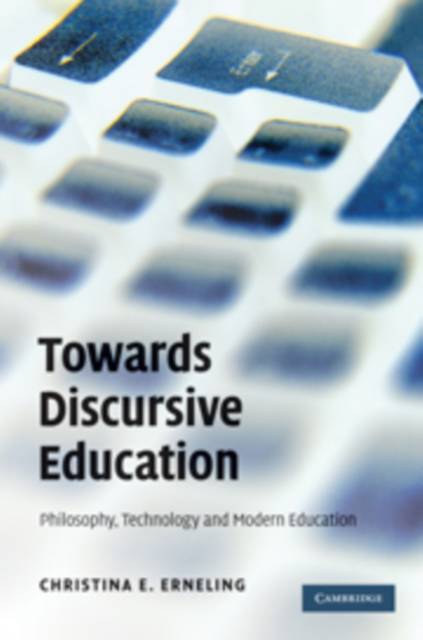
- Afhalen na 1 uur in een winkel met voorraad
- Gratis thuislevering in België vanaf € 30
- Ruim aanbod met 7 miljoen producten
- Afhalen na 1 uur in een winkel met voorraad
- Gratis thuislevering in België vanaf € 30
- Ruim aanbod met 7 miljoen producten
Zoeken
Towards Discursive Education
Philosophy, Technology, and Modern Education
Christina E Erneling
Hardcover | Engels
€ 82,45
+ 164 punten
Uitvoering
Omschrijving
As technology continues to advance, the use of computers and the Internet in educational environments has immensely increased. But just how effective has their use been in enhancing children's learning? In this thought-provoking book, Christina E. Erneling conducts a thorough investigation of scholarly journals articles on how computers and the Internet affect learning. She critiques the influential pedagogical theories informing the use of computers in schools - in particular those of Jean Piaget and 'theory of mind' psychology. Erneling introduces and argues for a discursive approach to learning based on the philosophy of Ludwig Wittgenstein and the psychology of Lev Vygotsky. This book not only addresses an urgent pedagogical problem in depth, but also challenges domineering assumptions on learning in both developmental psychology and cognitive science.
Specificaties
Betrokkenen
- Auteur(s):
- Uitgeverij:
Inhoud
- Aantal bladzijden:
- 210
- Taal:
- Engels
Eigenschappen
- Productcode (EAN):
- 9780521194747
- Verschijningsdatum:
- 1/11/2010
- Uitvoering:
- Hardcover
- Formaat:
- Genaaid
- Afmetingen:
- 152 mm x 229 mm
- Gewicht:
- 476 g

Alleen bij Standaard Boekhandel
+ 164 punten op je klantenkaart van Standaard Boekhandel
Beoordelingen
We publiceren alleen reviews die voldoen aan de voorwaarden voor reviews. Bekijk onze voorwaarden voor reviews.











